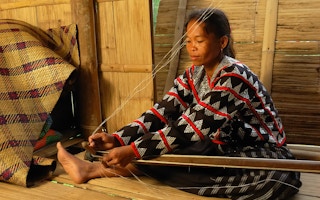As Australia prepares to vote on whether to constitutionally recognise its Indigenous people, supporters of a change say a win in the Oct. 14 referendum would bring the country into line with those that already have Indigenous rights enshrined into law.
Australia has no treaty with its Aboriginal and Torres Strait Islander people, who make up about 3.2 per cent of its 26 million population. Marginalised by British colonial rulers, they are not mentioned in the 122-year-old constitution and today they track below national averages on most socio-economic measures.
In the referendum, Australians will be asked whether they support changing the constitution to set up an Indigenous committee to advise the federal parliament.
Supporters of the change say it will bring progress for the Aboriginal community, while opponents say it would be divisive. Others have described it as tokenism and toothless.
Representing about 19 per cent of the world’s extreme poor, Indigenous groups are vulnerable to human rights abuses and climate change impacts, as well as having poor access to educational opportunities and health services, the United Nations says.
Some countries use parliamentary quotas or treaties to tackle these inequalities, while others protect land titles. Here are some examples of how states have legally recognised Indigenous rights:
BRAZIL
In January, newly re-elected President Luiz Inacio Lula da Silva, who has pledged to strengthen Indigenous rights, created the Ministry of Indigenous Peoples and appointed Sonia Guajajara to head it, making her the first Indigenous woman to become a minister.
Brazil’s 1988 constitution recognises Indigenous peoples’ rights to the land they traditionally occupy, and more than 200 areas are now seeking recognition as Indigenous land, according to non-profit Instituto Socioambiental.
The government also controls tens of millions of hectares of still “undesignated” public land, whose future as either private farms or protected areas is the focus of heated battles.
In September, a majority on the Supreme Court voted against a cut-off date limiting Indigenous land claims, a restriction sought by the powerful farm lobby to block rights to land that Indigenous people did not live on in 1988.
THE PHILIPPINES
The 1997 Indigenous Peoples’ Rights Act recognises the rights of Indigenous peoples to preserve their culture and institutions.
They have the right of ownership and possession of their “ancestral domain”, which includes “lands, inland waters, coastal areas and natural resources”.
In August, the Supreme Court ordered a mining company and government agencies to address Indigenous concerns over plans to mine nickel in a protected area. Activists hope the verdict could lead to the cancellation of the project.
CANADA
Canada recognises and affirms Aboriginal and treaty rights for First Nation, Inuit and Métis peoples in Section 35 of the Constitution Act, 1982.
Indigenous rights can include land rights, rights to occupy and use lands and resources, such as hunting and fishing rights, self-government rights, and cultural and social rights.
NEW ZEALAND
In 1840, Māori chiefs and the British Crown signed the Treaty of Waitangi, an agreement that protects Māori culture and its people.
However, Treaty rights can only be enforced in court when a statute or an act explicitly refers to the Treaty.
In 2018, Te Arawhiti, or the Office for Māori Crown Relations, was established to ensure the government would work with Māori to meet its Treaty commitments.
Since 1867, there have been guaranteed Māori electorates under the Māori Representation Act. There are now seven Māori seats in parliament although recently there has been some public debate around whether such quotas are still necessary.
NORDIC COUNTRIES
The Sámi people are an Indigenous group who live across Sweden, Norway, Finland and Russia.
For decades, Sámi people have been recognised in the constitutions of Finland, Norway and Sweden, and have the right to preserve and protect their culture and language.
Each of these nations has established it own Sámi Parliament and these elected, consultative bodies advise the national governments on issues relating to the Sámi.
ECUADOR
In August, referendums to ban oil drilling in part of the Amazon and mining in a forest outside the capital Quito easily passed.
The results were welcomed by Indigenous leaders and environmentalists, who said the regions’ rich biodiversity and Indigenous peoples had been protected while investors had been shown that unchecked resource extraction was no longer acceptable.
INDIA
In July 2022, Droupadi Murmu became India’s first president to come from a marginalised tribal community.
Murmu’s elevation to India’s highest constitutional post - only the second woman in the role - was seen as an important gesture of goodwill by Prime Minister Narendra Modi to the communities that make up more than 8 per cent of India’s 1.4 billion people.
Although the role itself is largely ceremonial, the president can play a key role during political crises. If a general election is inconclusive, for example, the president can decide which party is best placed to form a government.
In 1999, India established the Ministry of Tribal Affairs to boost the socio-economic development of Indigenous and tribal people.
This story was published with permission from Thomson Reuters Foundation, the charitable arm of Thomson Reuters, that covers humanitarian news, climate change, resilience, women’s rights, trafficking and property rights. Visit https://www.context.news/.








